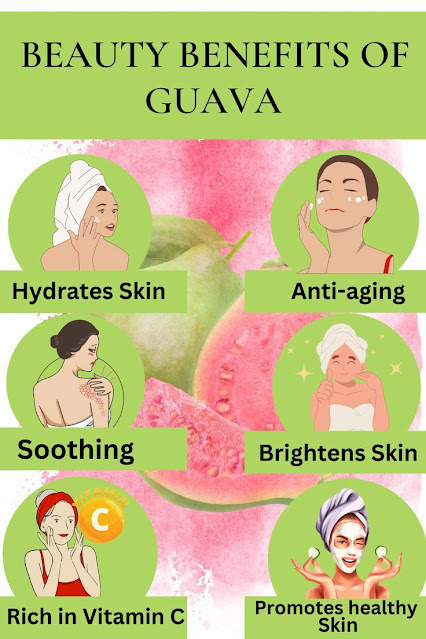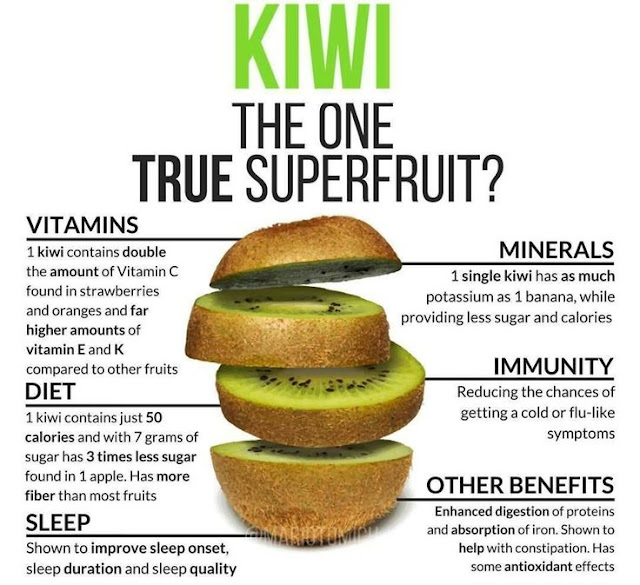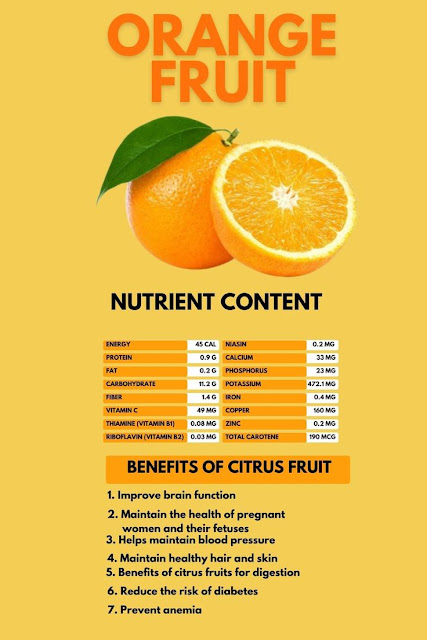HIGHEST PROTEIN FRUITS
Guava is a nutrient-rich fruit with several benefits, including a notable protein content.
Protein Content:
Protein: Approximately 2.6 grams per 100 grams of raw guava.
Benefits of Protein in Guava:
Muscle Health: Helps in the repair and growth of muscle tissues.
Satiety: Contributes to a feeling of fullness, which can aid in weight management.
Enzyme Function: Supports the function of enzymes involved in various bodily processes.
Overall Health: Complements the fruit’s other nutrients, enhancing overall health and well-being.
In addition to protein, guava is rich in vitamins, minerals, and antioxidants, making it a valuable fruit for maintaining general health.
Cantaloupe, also known as muskmelon, is a delicious and nutritious fruit. Here’s a quick overview of its nutritional profile and benefits:
Nutritional Profile:
Protein: Approximately 0.8 grams per 100 grams.
Carbohydrates: About 8.2 grams per 100 grams, primarily from natural sugars.
Fiber: Contains around 0.9 grams per 100 grams.
Vitamin C: High content, around 36.7 mg per 100 grams, which supports immune function.
Vitamin A: Present in the form of beta-carotene, important for vision and skin health.
Potassium: About 267 mg per 100 grams, which helps in maintaining fluid balance and blood pressure.
Antioxidants: Contains antioxidants like beta-carotene and lutein.
Benefits of Cantaloupe:
Hydration: High water content (about 89% of its weight) helps keep you hydrated.
Immune Support: Rich in Vitamin C, which boosts the immune system and promotes healthy skin.
Eye Health: High levels of Vitamin A and antioxidants like beta-carotene support vision health and may reduce the risk of age-related macular degeneration.
Digestive Health: The fiber content aids in digestion and helps prevent constipation.
Skin Health: Antioxidants and vitamins help maintain healthy, glowing skin and can support the healing of wounds.
Low in Calories: A low-calorie fruit that is great for weight management and maintaining a balanced diet.
Blackberries are a nutrient-dense fruit with numerous health benefits. Here’s a snapshot of their nutritional profile and benefits:
Nutritional Profile:
Protein: Approximately 1.4 grams per 100 grams.
Carbohydrates: About 9.6 grams per 100 grams, including dietary fiber.
Fiber: Around 5.3 grams per 100 grams, which supports digestive health.
Vitamin C: High content, around 21 mg per 100 grams, which supports immune function and skin health.
Vitamin K: Approximately 19.8 µg per 100 grams, important for blood clotting and bone health.
Vitamin A: Present in smaller amounts, contributes to eye health.
Manganese: About 0.6 mg per 100 grams, crucial for bone health and metabolism.
Copper: Contributes to various bodily functions including iron absorption and collagen production.
Antioxidants: Rich in antioxidants like anthocyanins, quercetin, and ellagic acid.
Benefits of Blackberries:
Rich in Antioxidants: Help neutralize free radicals, reducing oxidative stress and inflammation.
Supports Immune System: High Vitamin C content strengthens immune defenses.
Promotes Digestive Health: High fiber content aids in digestion and prevents constipation.
Bone Health: Vitamin K and manganese contribute to bone strength and health.
Improves Skin Health: Antioxidants and Vitamin C support skin repair and collagen production.
Enhances Cognitive Function: Antioxidants may help improve brain health and reduce the risk of cognitive decline.
Supports Heart Health: Fiber, antioxidants, and potassium contribute to overall cardiovascular health by supporting healthy blood pressure and reducing cholesterol levels.
Raspberries are a delicious and nutritious fruit with several health benefits.
Nutritional Profile:
Protein: Approximately 1.2 grams per 100 grams.
Carbohydrates: About 11.9 grams per 100 grams, including dietary fiber.
Fiber: Around 6.5 grams per 100 grams, which supports digestive health.
Vitamin C: High content, around 26.2 mg per 100 grams, which boosts immune function and supports skin health.
Vitamin K: Approximately 7.8 µg per 100 grams, important for blood clotting and bone health.
Vitamin E: Present in smaller amounts, contributes to antioxidant protection.
Manganese: About 0.7 mg per 100 grams, crucial for metabolism and bone health.
Magnesium: Contributes to muscle and nerve function, as well as energy production.
Antioxidants: Rich in antioxidants like quercetin, ellagic acid, and anthocyanins.
Benefits of Raspberries:
Rich in Antioxidants: Help combat oxidative stress and inflammation, reducing the risk of chronic diseases.
Supports Immune System: High Vitamin C content enhances immune function and helps protect against infections.
Promotes Digestive Health: High fiber content aids in digestion, promotes regular bowel movements, and helps prevent constipation.
Bone Health: Vitamin K and manganese contribute to bone strength and health.
Skin Health: Antioxidants and Vitamin C support skin repair and collagen production, promoting a healthy complexion.
Supports Heart Health: Fiber, antioxidants, and potassium help maintain healthy blood pressure levels and reduce cholesterol.
Weight Management: Low in calories but high in fiber, raspberries can help with satiety and weight management.
Kiwi, also known as kiwifruit, is a nutrient-packed fruit with a unique tangy flavor and numerous health benefits.
Nutritional Profile:
Protein: Approximately 1.1 grams per 100 grams.
Carbohydrates: About 14.7 grams per 100 grams, including natural sugars and dietary fiber.
Fiber: Around 3 grams per 100 grams, which supports digestive health.
Vitamin C: Extremely high content, around 92.7 mg per 100 grams, which supports immune function and skin health.
Vitamin K: Approximately 40.3 µg per 100 grams, important for blood clotting and bone health.
Vitamin : Present in smaller amounts, contributes to antioxidant protection.
Potassium: About 312 mg per 100 grams, helps regulate blood pressure and fluid balance.
Copper: Contributes to various bodily functions including iron metabolism and collagen formation.
Antioxidant: Contains antioxidants like polyphenols, carotenoids, and flavonoids.
Benefits of Kiwi:
High in Vitamin C: Boosts the immune system, aids in collagen production, and enhances skin health.
Supports Digestive Health: Fiber content helps with digestion and can alleviate constipation. Kiwi contains an enzyme called actinidin that aids protein digestion.
Promotes Heart Health: Potassium helps maintain healthy blood pressure levels, and antioxidants support cardiovascular health.
Improves Skin Health: Vitamin C and antioxidants contribute to a healthy, radiant complexion and help repair skin damage.
Supports Eye Health: Rich in antioxidants and Vitamin A, which can help reduce the risk of age-related macular degeneration.
Boosts Immune System: High Vitamin C content supports the body's defense mechanisms against infections and illnesses.
Aids in Weight Management: Low in calories and high in fiber, kiwi can help you feel full and satisfied.
Kiwi is versatile and can be enjoyed fresh, added to fruit salads, smoothies, or as a topping for yogurt and desserts. Its vibrant flavor and rich nutrient profile make it a valuable addition to a balanced diet.
Oranges are one of the most popular and widely consumed fruits worldwide, known for their refreshing taste and numerous health benefits.
Nutritional Profile:
Protein: Approximately 0.9 grams per 100 grams.
Carbohydrates: About 11.8 grams per 100 grams, mainly from natural sugars and dietary fiber.
Fiber: Around 2.4 grams per 100 grams, which supports digestive health.
Vitamin C: Very high content, around 53.2 mg per 100 grams, essential for immune function and skin health.
Vitamin A: Present in the form of beta-carotene, supports vision and skin health.
Vitamin B-complex: Includes folate (Vitamin B9), which is important for cell function and repair.
Potassium: About 181 mg per 100 grams, helps maintain fluid balance and supports heart health.
Calcium: Provides a small amount, contributing to bone health.
Antioxidants: Contains antioxidants such as flavonoids, including hesperidin and anthocyanins.
Benefits of Oranges:
Rich in Vitamin C: Boosts the immune system, enhances skin health, and helps with collagen formation.
Supports Digestive Health: Fiber aids in digestion, helps prevent constipation, and supports gut health.
Promotes Heart Health: Potassium helps maintain healthy blood pressure levels, while antioxidants reduce inflammation and lower cholesterol.
Improves Skin Health: Vitamin C and antioxidants help repair skin damage, reduce wrinkles, and promote a healthy complexion.
Supports Immune Function: High Vitamin C content strengthens the body's defense against infections and illnesses.
May Reduce the Risk of Chronic Diseases: Antioxidants in oranges can help reduce the risk of diseases such as heart disease and certain cancers.
Hydration: Oranges have high water content (about 86% of their weight), contributing to hydration and overall health.
Passion fruit, also known as Passiflora edulis, is a tropical fruit known for its unique flavor and rich nutritional profile.
Nutritional Profile:
Protein: Approximately 2.2 grams per 100 grams.
Carbohydrates: About 23.4 grams per 100 grams, including natural sugars and dietary fiber
Fiber: Around 10.4 grams per 100 grams, which supports digestive health.
Vitamin C: High content, around 30 mg per 100 grams, which supports immune function and skin health.
Vitamin A: Present in the form of beta-carotene, contributes to vision and skin health.
Vitamin B-complex: Includes B2 (riboflavin) and B3 (niacin), which are important for energy production and metabolic processes.
Potassium: About 348 mg per 100 grams, helps regulate fluid balance and supports heart health.
Magnesium: Contributes to muscle and nerve function, as well as overall health.
Iron: Present in smaller amounts, supports oxygen transport in the blood.
Antioxidants: Contains antioxidants like beta-carotene, polyphenols, and flavonoids.
Benefits of Passion Fruit
Rich in Fiber: High fiber content aids digestion, helps prevent constipation, and supports a healthy gut.
Supports Immune Health: Vitamin C boosts the immune system, enhances skin health, and helps the body fight infections.
Promotes Heart Health: Potassium helps regulate blood pressure, while antioxidants may reduce inflammation and improve cardiovascular health.
Improves Skin Health: Vitamin A and antioxidants contribute to skin repair and a healthy complexion.
Enhances Sleep Quality: Contains compounds like serotonin and alkaloids that may promote relaxation and improve sleep quality.
Supports Eye Health: High in Vitamin A, which is essential for good vision and eye health.
Hydration: The fruit's high water content helps in maintaining hydration and overall health.
Jackfruit is a large tropical fruit known for its distinctive flavor and versatility. It’s packed with nutrients and offers various health benefits.
Nutritional Profile:
Protein: Approximately 2.6 grams per 100 grams.
Carbohydrates: About 23.3 grams per 100 grams, including natural sugars and dietary fiber.
Fiber: Around 1.5 grams per 100 grams, which supports digestive health.
Vitamin C: Contains about 13.7 mg per 100 grams, which supports immune function and skin health.
Vitamin A: Present in the form of beta-carotene, important for vision and skin health.
Vitamin B-complex: Includes B6 (pyridoxine), which supports brain health and helps in energy metabolism.
Potassium: Approximately 448 mg per 100 grams, helps regulate blood pressure and fluid balance.
Magnesium: Contributes to muscle and nerve function and overall health.
Calcium: Provides a small amount, which supports bone health.
Antioxidants: Contains antioxidants such as flavonoids and carotenoids.
Benefits of Jackfruit:
Rich in Nutrients: Provides a good mix of essential vitamins and minerals that contribute to overall health.
Supports Digestive Health: Fiber content aids digestion, prevents constipation, and supports a healthy gut.
Boosts Immune System: Vitamin C supports immune function and helps the body fight infections.
Promotes Heart Health: Potassium helps regulate blood pressure, while antioxidants may reduce inflammation and improve cardiovascular health.
Enhances Skin Health: Vitamins A and C contribute to skin repair, reduce wrinkles, and promote a healthy complexion.
Supports Energy Levels: The fruit’s B vitamins help with energy metabolism and can contribute to overall vitality.
May Aid in Weight Management: Its fiber content can help you feel full longer, aiding in weight management.
Jackfruit's versatility and nutritional value make it a great addition to a healthy diet, whether consumed fresh, cooked, or dried.
Apricots are a nutritious and flavorful fruit with a range of health benefits.
Nutritional Profile:
Protein: Approximately 0.5 grams per 100 grams.
Carbohydrates: About 11 grams per 100 grams, including natural sugars and dietary fiber.
Fiber: Around 2 grams per 100 grams, which supports digestive health.
Vitamin A: High content, around 1926 IU per 100 grams, primarily in the form of beta-carotene, which supports vision and skin health.
Vitamin C: Approximately 10 mg per 100 grams, which supports immune function and skin health.
Vitamin E: Present in smaller amounts, contributes to antioxidant protection.
Potassium: About 259 mg per 100 grams, helps regulate blood pressure and fluid balance.
Magnesium: Supports muscle and nerve function.
Calcium: Provides a small amount, contributing to bone health.
Antioxidants: Contains antioxidants like beta-carotene and flavonoids.
Benefits of Apricots:
Rich in Vitamin A: Supports healthy vision, skin, and immune function.
Supports Digestive Health: Fiber aids in digestion, helps prevent constipation, and supports a healthy gut.
Boosts Immune System: Vitamin C enhances immune function and helps the body fight infections.
Promotes Skin Health: Vitamins A and E, along with antioxidants, contribute to healthy skin and can help reduce signs of aging.
Supports Heart Health: Potassium helps regulate blood pressure, and antioxidants may reduce inflammation and improve cardiovascular health.
Provides Hydration: High water content helps maintain hydration and overall health.
May Improve Bone Health: Calcium and other minerals in apricots support bone strength.
Culinary Uses:
Fresh: Eaten as a fresh fruit, either raw or after ripening.
Dried: Consumed as dried apricots, which are a convenient and nutrient-dense snack.
Cooked: Used in jams, preserves, desserts, and savory dishes.
Juice: Made into apricot juice or incorporated into smoothies.
Apricots can be a tasty and healthy addition to your diet, offering a variety of nutritional benefits while adding flavor to both sweet and savory dishes.
-------------------------------------------------------------------------------------------------------------
Thank You for Reading My Blog!
Thank you so much for taking the time to read my blog about the amazing benefits of moringa powder for natural hair growth and overall health. I hope you found the information helpful and inspiring for your journey towards healthier hair and a more natural lifestyle.
Your support and interest mean a lot to me. If you have any questions, comments, or personal experiences with moringa or other Ayurvedic herbs, please feel free to share them. I love hearing from my readers and learning from your experiences.
Stay tuned for more tips, insights, and natural remedies for your hair and health care routines. Thank you again for your readership and support!
Warm regards,
[MVD]











.jpeg)

Comments
Post a Comment